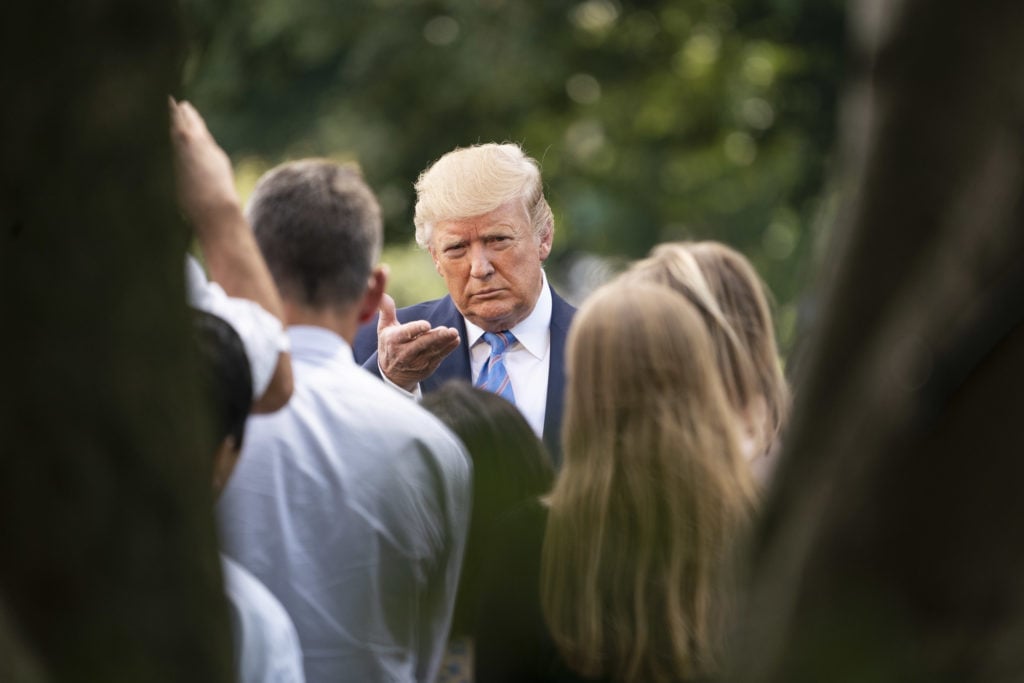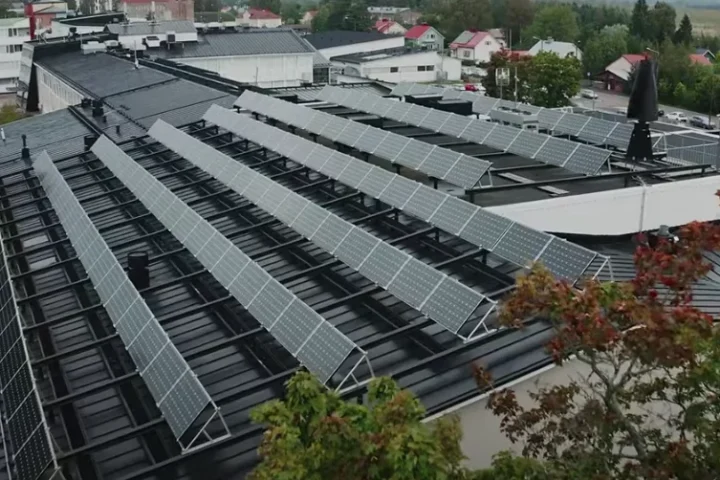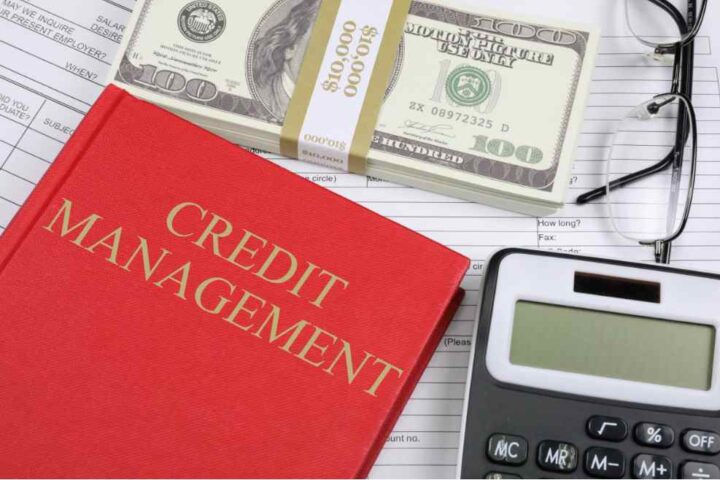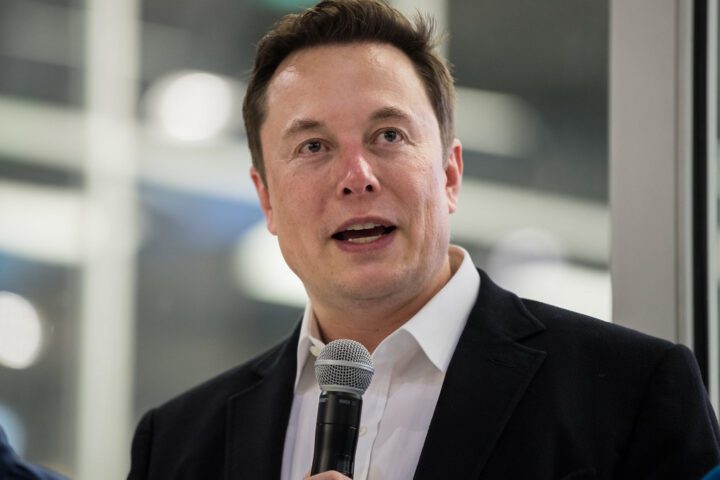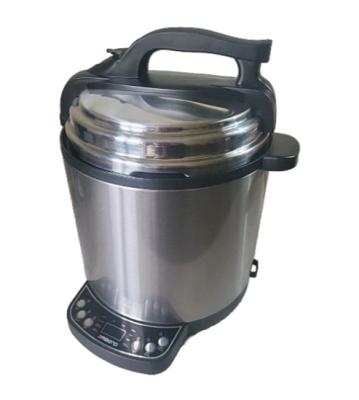President Donald Trump sent formal letters to 17 major pharmaceutical companies on July 31, demanding they implement “Most Favored Nation” pricing within 60 days. This action builds on his May 12 executive order targeting the price gap between U.S. and foreign drug costs.
White House Press Secretary Karoline Leavitt displayed the letters addressed to CEOs of AbbVie, Amgen, AstraZeneca, Boehringer Ingelheim, Bristol-Myers Squibb, Eli Lilly, EMD Serono, Genentech, Gilead, GSK, Johnson & Johnson, Merck, Novartis, Novo Nordisk, Pfizer, Regeneron and Sanofi. Following the announcement, stocks dropped noticeably, with shares of Pfizer, Eli Lilly and Gilead Sciences falling about 2%, while the NYSE Arca Pharmaceutical Index dropped 3%.
Administration’s Four Specific Requirements
The letters outline four non-negotiable demands with a September 29 deadline:
- Extend Most Favored Nation pricing for existing medications to Medicaid patients
- Guarantee Medicare, Medicaid and commercial insurers receive the same lower foreign prices for all newly approved drugs
- Return additional revenues earned abroad to U.S. taxpayers through “an explicit agreement”
- Create direct purchasing options at MFN pricing for high-volume, high-rebate prescription drugs
“Most proposals my administration has received to ‘resolve’ this critical issue promised more of the same: shifting blame and requesting policy changes that would result in billions of dollars in handouts to industry,” Trump wrote in the letters posted to Truth Social.
How Much Do You Know About U.S. Drug Prices?
1. On average, U.S. drug prices are how many times higher than in other OECD countries?
U.S.-Foreign Price Differential
The ultimatum addresses documented price disparities. RAND Corporation's 2022 analysis found U.S. prescription drug prices average 2.78 times higher than in 33 OECD countries, with brand-name drugs costing 4.22 times more. Only unbranded generics cost less in America, at about 67% of foreign prices.
RAND researchers estimate total drug spending across studied OECD nations reached $989 billion in 2022, with the U.S. accounting for 62% of sales but just 24% of volume. This disproportionate spending has continued despite various reform attempts.
"The United States has less than five percent of the world's population and yet funds around three quarters of global pharmaceutical profits," states the May executive order. "This egregious imbalance is orchestrated through a purposeful scheme in which drug manufacturers deeply discount their products to access foreign markets, and subsidize that decrease through enormously high prices in the United States."
Impact on Patients
High drug costs directly affect medication adherence. Kaiser Family Foundation's 2023 survey reveals 21% of American adults didn't fill prescriptions due to cost concerns, while another 21% substituted over-the-counter alternatives, and 12% split pills or skipped doses entirely.
Lower-income Americans face greater challenges – 37% of those earning under $40,000 annually report not taking medications as prescribed due to cost. A May 2019 KFF Health News survey found approximately 8% of Americans import medications from abroad to save money, which would translate to about 19 million adults based on Census population estimates at that time.
Industry Responses
Pharmaceutical companies have responded cautiously to the ultimatum. A Novo Nordisk spokesperson stated: "Novo Nordisk remains focused on improving patient access and affordability, and we will continue to work to find solutions that help people access the medication they need."
GSK CEO Emma Walmsley confirmed ongoing discussions with the administration regarding "discounts being passed on to patients and pricing being sustainable."
PhRMA, the industry's lobbying group, voiced opposition through Senior Vice President Alex Schriver, who stated: "Importing foreign price controls would undermine American leadership, hurting patients and workers." The organization suggested U.S. officials should "rein in health care middlemen driving up costs for Americans and get foreign countries to pay their fair share for innovative medicines."
Legal Limitations and Previous Attempts
Health policy experts question the administration's authority to mandate price changes. "The president does not have the legal authority nor the regulatory tools to require drugmakers to sell their products at 'Most Favored Nation' prices in any market," said Spencer Perlman, director of health care policy research at Veda Partners.
A similar Trump-era initiative to establish MFN pricing for certain Medicare drugs was blocked by federal courts in December 2020 before being rescinded by President Biden in 2021. The administration could attempt to implement a mandatory "test" of such pricing through CMS's Innovation Center, but this would likely face legal challenges, Perlman noted.
Parallel Drug Pricing Initiatives
The ultimatum coincides with other significant drug pricing developments:
- HHS announced a 340B Rebate Model Pilot Program on July 31, which will test rebate approaches for the 10 drugs on Medicare's Drug Price Negotiation Selected Drug List beginning January 2026. Manufacturers must apply by September 15 to participate.
- Medicare's drug price negotiation program under the Inflation Reduction Act has secured discounts between 38% and 79% off list prices for the first 10 selected medications, which become effective in 2026.
- Florida became the first state to gain FDA authorization to import certain prescription drugs from Canada on January 5, 2024, though the program is limited to specific state agencies and government programs.
As the September 29 deadline approaches, pharmaceutical manufacturers must decide whether to comply voluntarily with the administration's demands or potentially face additional regulatory measures, which Trump's letters describe as "every tool in our arsenal."
